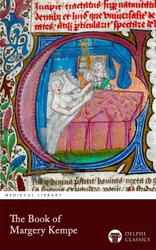A collection of Old English annals, the original manuscript of ‘The Anglo-Saxon Chronicle’ was created late in the ninth century, during the reign of Alfred the Great. It is the oldest history of a European country in its vernacular, offering a treasure trove of knowledge of the Anglo-Saxon period. Along with Bede’s ‘Ecclesiastical History of the English People’, it provides an insight into the history of the English in the period following Roman rule up until the Norman Conquest, preserving a variety of depictions of Anglo-Saxon life. Delphi’s Medieval Library provides eReaders with rare and precious works of the Middle Ages, with noted English translations and the original texts. This eBook presents multiple translations of ‘The Anglo-Saxon Chronicle’, with illustrations, a concise introduction and the usual Delphi bonus material. (Version 1)
* Beautifully illustrated with images relating to the Anglo-Saxon texts
* Features the complete extant text of ‘The Anglo-Saxon Chronicle’, in both English translation and the original Old English
* Concise introduction to the text
* Two translations: James Ingram Translation (1823); J. A. Giles Translation (1914)
* Includes the translators’ original hyperlinked footnotes
* Excellent formatting of the texts
* Easily locate the sections you want to read with individual contents tables
* Features five bonus resource texts, including Hall’s seminal ‘Concise Anglo-Saxon Dictionary’ — immerse yourself in the world of the Anglo-Saxons
CONTENTS:
The Translations
Anglo-Saxon Chronicle — James Ingram Translation (1823)
Anglo-Saxon Chronicle — J. A. Giles Translation (1914)
The Original Texts
Old English Manuscripts
The Resources
History of the Anglo-Saxons (1850) by Thomas Miller
Anglo-Saxon Britain (1881) by Grant Allen
The Chronicles (1884) by John Earle
A Concise Anglo-Saxon Dictionary (1916) by J. R. Clark Hall
Anglo-Saxon Learning and Prose (1921) by Andrew Lang








